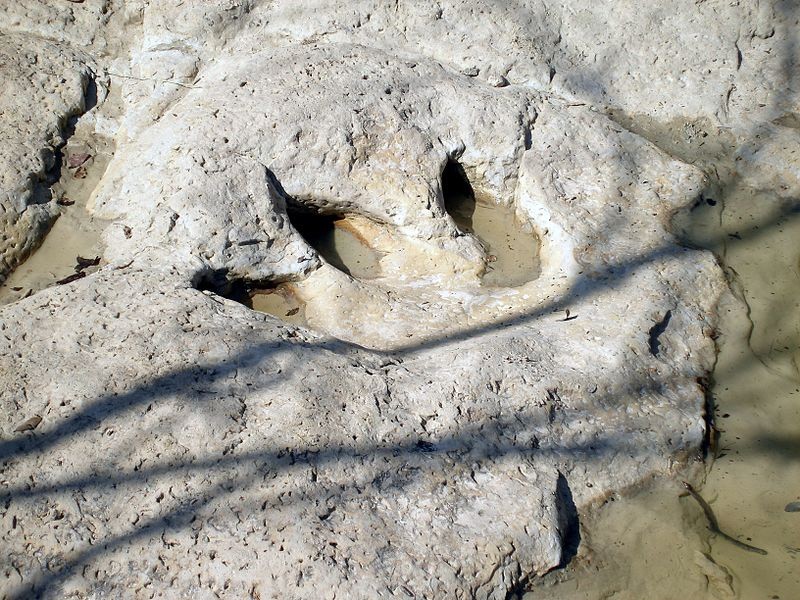
In the throes of a drying river brought on by the severe drought, dinosaur footprints from 113 million years ago that had been previously submerged have been found in Texas.
Where Else but Dinosaur Valley State Park?
Due to the severe drought that is afflicting Texas and other states in the US southwest, the Paluxy River has shrunk, making previously hidden dinosaur footprints under the waterline visible. The Paluxy River runs through Dinosaur Valley State Park.
There are numerous dinosaur prints in Dinosaur Valley State Park, about 60 miles southwest of Fort Worth, primarily from extinct sauropods and theropods. The tracks in the riverbed are being observed for the first time. The recently discovered footprints, which are visible as deep grooves in the murky riverbed that are the size of several human hands across, are shown in a video that wad posted by the Dinosaur Valley State Park official account on social media.
Sauropods
Herbivorous dinosaurs known as sauropods, which include species such as Brontosaurus and Diplodocus, had large, flat feet resembling elephant feet. Instead, theropods like Tyrannosaurus rex and velociraptors had distinctive three-toed clawed feet. Theropods and sauropods were among the last dinosaurs alive when they were eventually exterminated 66 million years ago by an asteroid strike.
Some of the theropod tracks found in the park lack the recognizable three-toed pattern due to the toe impressions being buried by runny, deep mud, according to the website for Dinosaur Valley State Park.
113 Million Years Ago
The Dallas region was at the shore of a sea when the tracks in the park were allegedly left about 113 million years ago, in the middle of the Cretaceous Era. The mud at this shoreline was of the perfect consistency to preserve tracks, according to the park website, thanks to calcium carbonate deposits brought about by shells of crustaceans.
Megadrought
The extremely low river levels, according to park officials, have made more tracks visible right now than they would normally be. So now is a great time to visit for those who want to look for tracks or dinosaur footprints and explore that part of the park.
The National Parks Service has named Dinosaur Valley State Park a National Natural Landmark for its display of dinosaur footprints.
Texas is almost entirely experiencing drought conditions, with about a quarter of its land area experiencing "exceptional drought," according to the US Drought Monitor.
The megadrought that is currently affecting the southwest of the United States is having a variety of effects in addition to the Paluxy River drying up, including extremely high temperatures, frequent wildfires, and the quick evaporation of water from significant reservoirs in Texas and many other states.
Other strange things that had been hidden beneath the surface have come to light as a result of the drought-driven water recession. The five sets of human remains discovered at Lake Mead on the Nevada/Arizona border stand out, with one set being discovered inside a barrel with bullet wounds, Newsweek reports.
© 2025 NatureWorldNews.com All rights reserved. Do not reproduce without permission.





